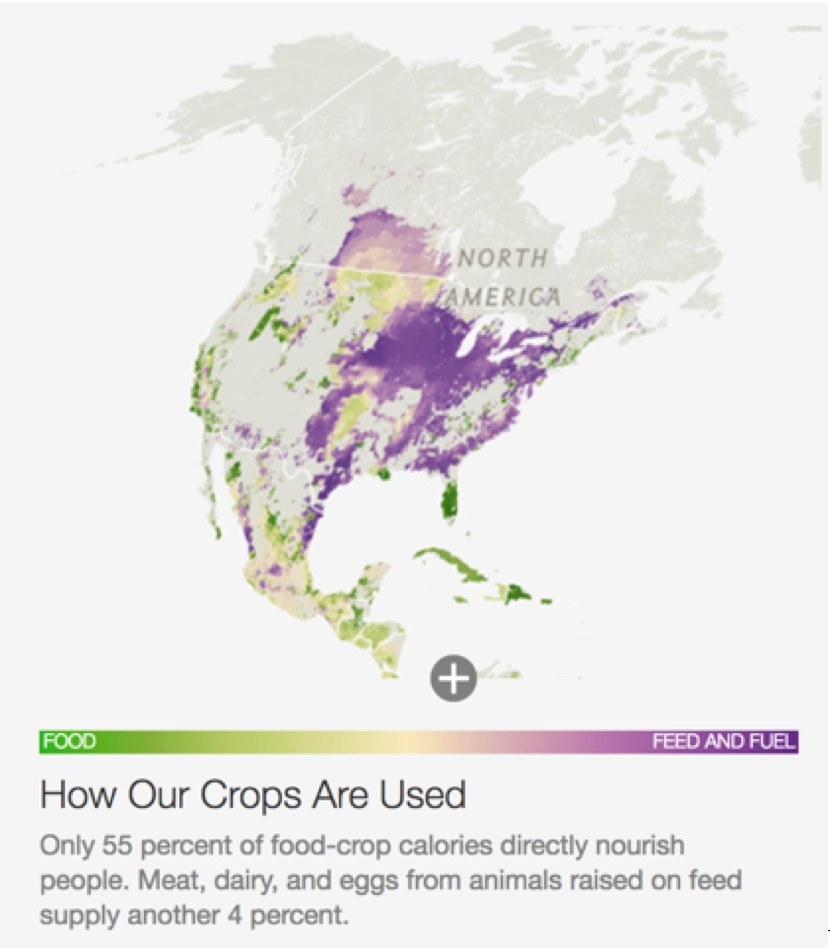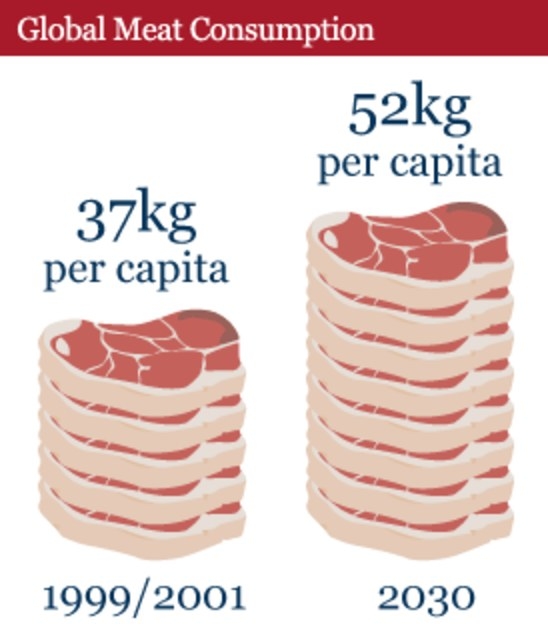1. Animal agriculture contributes to the destruction of the Amazon
View this video on YouTube
The World Bank reports that 91% of deforested areas in the Amazon are used for cattle ranching. Our consumer demand for meat products serves as a central incentive for raising more cattle and consequently destroying more of the Amazon. This is problematic for many reasons including bio- diversity loss and carbon emissions. With the Amazon providing a home for over 40,000 different species, our decision to eat meat impacts many more animals than just cows and chickens. Secondly, the Amazon Rainforest serves as a carbon sink for CO2 in our atmosphere. As humans continue to burn fossil fuels and exacerbate carbon emissions, carbon sinks like the Amazon are increasingly important for the well-being and stability of our planet.
2. Animal agriculture exacerbates Greenhouse Gas emissions
View this video on YouTube
According to The United Nations Food and Agriculture Organization the livestock sector accounts for 18% of global greenhouse gas emissions. This is more than the GHG emissions produced by all of the world’s trains, cars and planes combined. This shows that we don't need to wait to buy an expensive hybrid car, we can make an impact today by reducing our consumption of animal products.
Additionally, the livestock sector generates 65% of human produced nitrous oxide. Most of these emissions are caused by manure.
3. The production of meat is extremely water intensive

4. We already grow enough food to sustain the entire human population, but instead we feed cows

5. The problem is only getting worse




